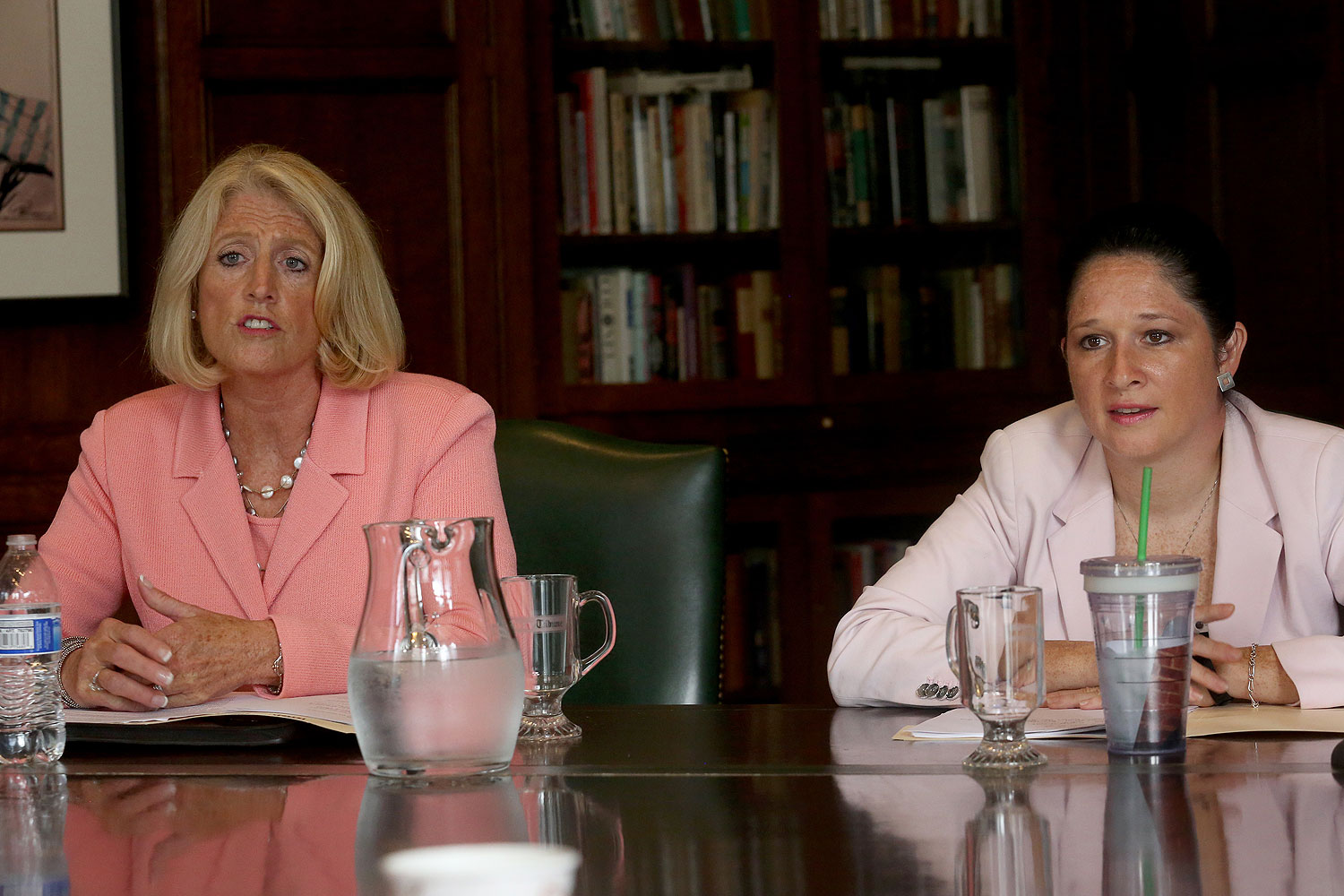President
Hillary Clinton is going to win Illinois, by a lot. FiveThirtyEight predicts about 13 points; The Upshot, 15; Huffington Post, 16. What will be interesting to watch is whether Trump can beat Clinton everywhere that isn't Chicago or its suburbs; according to the last Simon Institute poll, Trump had a lead of just 0.7 points.
In 2012, Mitt Romney beat Barack Obama by 142,500 votes. If Trump does indeed beat Clinton 40 percent to 39 percent outside Chicagoland, he'd win by about 20,000 votes. And 15.2 percent of downstate voters picked other/don't know, the highest in the state (exactly twice that of Chicago), so there's a chance Hillary Clinton could beat Trump downstate as well. It wouldn't make a difference, but it would be a mild surprise.
Senate
Tammy Duckworth has maintained a huge lead in the polls. Kirk's odd statement about her family in the second-to-last debate is unlikely to make a difference, nor will his apology.
Comptroller
No, don't close the tab, this is actually a pretty interesting race. As Will Connors reported in the Wall Street Journal, the two candidates have raised a combined ten million dollars for a position that tends not to be terribly ideological and hasn't proven to be an effective stepping stone to higher office.
What gives? As Rich Miller laid it out in Crain's last month, the comptroller position is a pressure point in a state without a budget. When doling out blame, Munger could lean on the legislature, as Miller argues she's done; Mendoza could choose to lean on the governor. It's a proxy, but one with some impact.
And Munger is a statewide bright spot for Republicans, within reason. The same October Simon Institute poll had Munger just eight points behind Mendoza with 22.5 percent undecided. Capitol Fax pollwatchers think it's favorable for Munger that she has 23 percent support in the city of Chicago, but Mendoza has a 29-point lead there and a 14-point lead in the Chicago suburbs, while Munger just a 12-point lead downstate. Her fundraising advantage has to give her a big break in undecideds to win.
State legislative races
Eric Zorn has a handy checklist of the state races in play. The GOP has a decent chance of taking away the not-so-supermajority in the House; he argues that they have to pick up four House seats and two Senate seats to call it a win. Rich Miller's poll and the subsequent comments—not scientific, but generally a well-informed readership that's interested in a realistic view of Illinois politics—is leaning towards slight gains for the GOP. A Mendoza victory and a GOP pickup of a couple seats in the legislature would seem like a proxy-war stalemate.
Transportation lockbox amendment
My colleague Bettina Chang has what you need to know here. The money's for it; the journalists and policy wonks are (mostly) against it, like the CTBA.
So who's going to win? One guess. According to an October Simon Institute poll it's wildly popular and the differences in region, ideology, race, whatever are pretty trivial given the amount of support.
It's 76 percent in favor versus 13 against with just eight percent "other/don't know" (a bit of a surprise given the complexity of the issue and its wording on the ballot). Liberals are 70 percent in favor, conservatives 85 percent (ditto for Democrat and Republican). Union members are 77 percent in favor, non-union 76 percent. Chicagoans are 71 percent in favor, suburbanites 74 percent, downstaters 83 percent.
It'll win. But according to an analysis done by the Center for Municipal Finance at the University of Chicago (emphasis mine):
If voters approve the Lockbox Amendment, lawmakers have indicated they will pass legislation for its implementation and to clarify what counts as transportation revenue and spending. However, there is no guarantee that these details to be decided after the amendment is passed will align with voters’ wishes. Further, the legislation could be legally challenged and struck down by the Illinois Supreme Court. Backers of the proposed amendment have clarified that they intend for it to apply to a narrow set of revenue sources, but this conflicts with the actual language of the proposal. As such, the Illinois Supreme Court could rule that the amendment must be implemented in accordance with the broad language, and as consequence this would also mean that the proposed amendment’s actual impact is very different than is intended.
So a victory for the amendment is just the beginning of what could—surprise!—be a very messy process.



